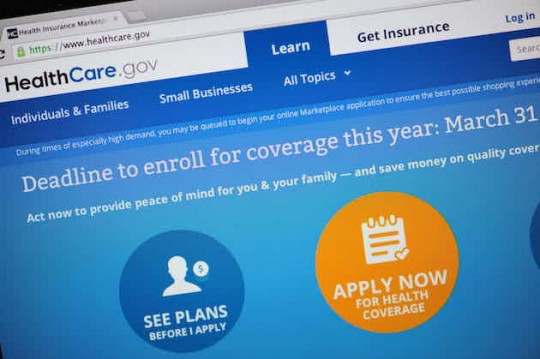Aetna, one of the largest health insurers in the United States, announced Monday it would be dropping out of 70 percent of the counties in which it offers coverage through Obamacare, also known as the Affordable Care Act.
According to Business Insider:
"The firm said that, after a review of its public health-exchange business, it determined that the nearly $200 million in pretax loss that it was sustaining on an annual basis was not worth the business."
Aetna will continue to offer health care options through the public exchanges in Delaware, Iowa, Nebraska, and Virginia but its services have been reduced from 778 counties to 242.
UnitedHealth Care, another leading health insurer announced its decision to completely quit Obamacare by 2017 in April:
"Aetna's and UnitedHealthcare's decisions to scale back is problematic for customers because the number of insurers competing through the exchange is closely linked with the affordability of the plans."
Aetna's CEO Mark T. Bertolini made a statement Monday night outlining his decision:
"Aetna Chairman and CEO Mark T. Bertolini made the following statement with regard to the company's 2017 participation in the Affordable Care Act individual public exchanges:
"Following a thorough business review and in light of a second-quarter pretax loss of $200 million and total pretax losses of more than $430 million since January 2014 in our individual products, we have decided to reduce our individual public exchange presence in 2017, which will limit our financial exposure moving forward. More than 40 payers of various sizes have similarly chosen to stop selling plans in one or more rating areas in the individual public exchanges over the 2015 and 2016 plan years, collectively exiting hundreds of rating areas in more than 30 states. As a strong supporter of public exchanges as a means to meet the needs of the uninsured, we regret having to make this decision.
"Providing affordable, high-quality health care options to consumers is not possible without a balanced risk pool. Fifty-five percent of our individual on-exchange membership is new in 2016, and in the second quarter we saw individuals in need of high-cost care represent an even larger share of our on-exchange population. This population dynamic, coupled with the current inadequate risk adjustment mechanism, results in substantial upward pressure on premiums and creates significant sustainability concerns.
"The vast majority of payers have experienced continued financial stress within their individual public exchange business due to these forces, which also are reported to have contributed to the failure of 16 out of 23 co-ops. We are encouraged by a recent announcement that the U.S. Department of Health and Human Services will explore new options to modify the risk adjustment program, and remain hopeful that we can work with policymakers from both parties on a sustainable public exchange model that meets the needs of the uninsured.
"We are committed to a health care marketplace that gives every American the opportunity to access affordable, high-quality care. We will continue to evaluate our participation in individual public exchanges while gaining additional insight from the counties where we will maintain our presence, and may expand our footprint in the future should there be meaningful exchange-related policy improvements.
"Aetna will reduce its individual public exchange participation from 778 to 242 counties for the 2017 plan year, maintaining an on-exchange presence in Delaware, Iowa, Nebraska and Virginia. The company will continue to offer an off-exchange individual product option for 2017 to consumers in the vast majority of counties where it offered individual public exchange products in 2016.
"This decision does not impact Aetna's products, services or benefits for the 2016 plan year. The company will communicate options to impacted members before the 2017 open enrollment period begins, and provide resources to assist them in transitioning to other plans as appropriate."
